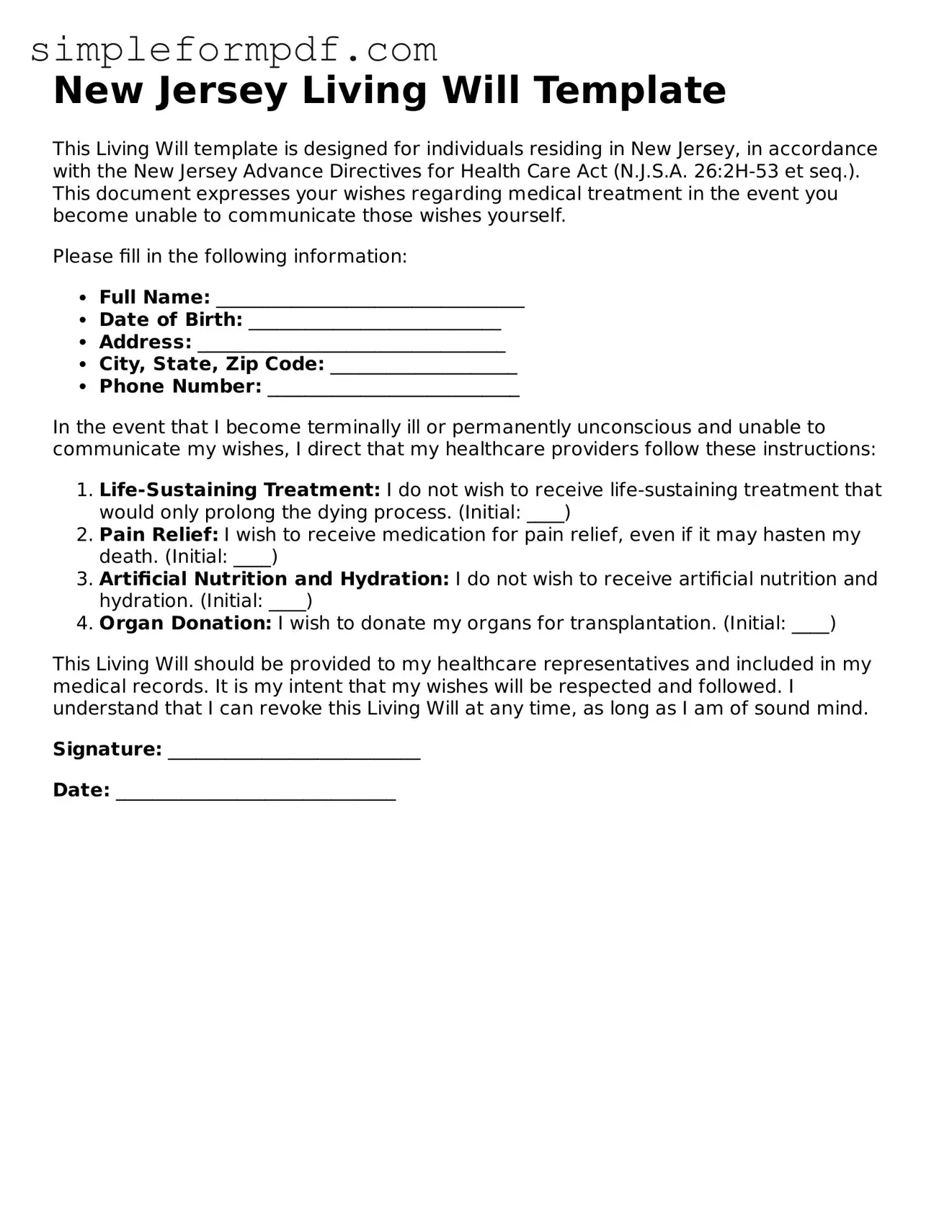Free Living Will Form for the State of New Jersey
A New Jersey Living Will is a legal document that allows individuals to express their wishes regarding medical treatment in the event they become unable to communicate those preferences. This form helps ensure that your healthcare decisions align with your values and desires. To take control of your medical future, fill out the Living Will form by clicking the button below.
Launch Editor

Free Living Will Form for the State of New Jersey
Launch Editor
Need instant form completion?
Finish Living Will online in just a few minutes.
Launch Editor
or
Download PDF
